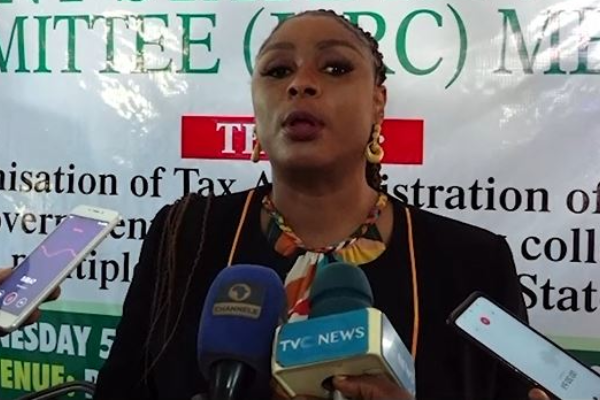Benue Internal Revenue Services (BIRS) says the board will would start collecting taxes from telephone users, cable subscribers and landowners from January 2023.
This was made known by the Executive chairman. Mimi Adzape-Orubibi, who spoke at a joint State Revenue Committee meeting in Makurdi on Wednesday.
Present at the meeting were the management of the IRS, Joint Chief Council Chairman, chairman of local government Revenue Committees, as well as representatives from the Revenue, Mobilization and Fiscal Commission, federal Road Safety Corps and Bureau of Local Government.
[wonderplugin_video iframe=”https://youtu.be/yZJcliU-hjo” lightbox=0 lightboxsize=1 lightboxwidth=960 lightboxheight=540 autoopen=0 autoopendelay=0 autoclose=0 lightboxtitle=”” lightboxgroup=”” lightboxshownavigation=0 showimage=”” lightboxoptions=”” videowidth=600 videoheight=400 keepaspectratio=1 autoplay=0 loop=0 videocss=”position:relative;display:block;background-color:#000;overflow:hidden;max-width:100%;margin:0 auto;” playbutton=”https://www.tvcnews.tv/wp-content/plugins/wonderplugin-video-embed/engine/playvideo-64-64-0.png”]
Adzape-Orubibi said that JSRC would follow the 2022 BIRS Amended Act that harmonised the revenue items to end multiple taxation in the state.
She said that with the amendment, tenement rate, property tax and grounds rate would now be known as Land Use Charge.
The tax chief clarified that with these amendments to the rates, property tax and ground rates would now be known as land use charge at the local government areas.
The special adviser, local government and chief Trans said that the amortisation and automation would help the council chairman know the exact revenue.
Adzape-Orubibi went on to say that telephone users would pay N1,200 per year, cable subscribers would pay N2,400 per year, and land owners’ taxes would be decided by the size and value of their property.
The tax chief also stated that the board had already delivered Land Use Charge demand notices to all land owners and sent them reminders.
She added that local governments will receive 40% of each harmonised revenue item, adding that “the goal is to stop arbitrary tax collecting and various taxing in the state.”





